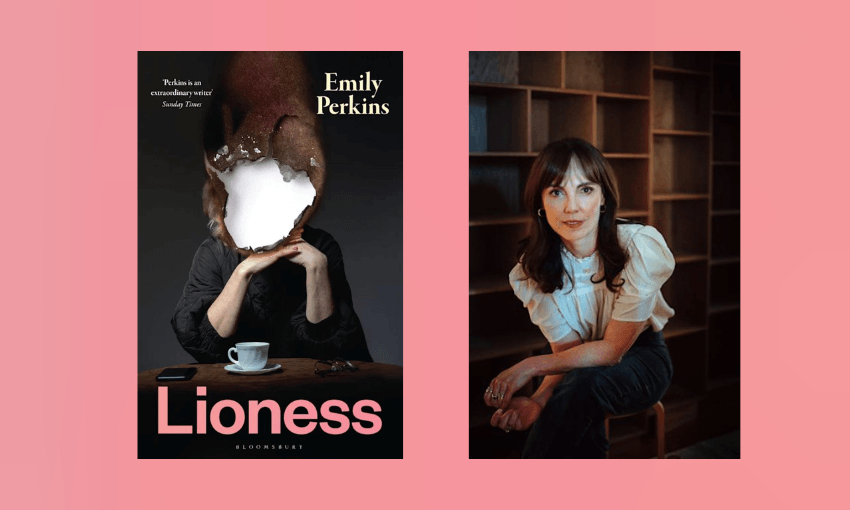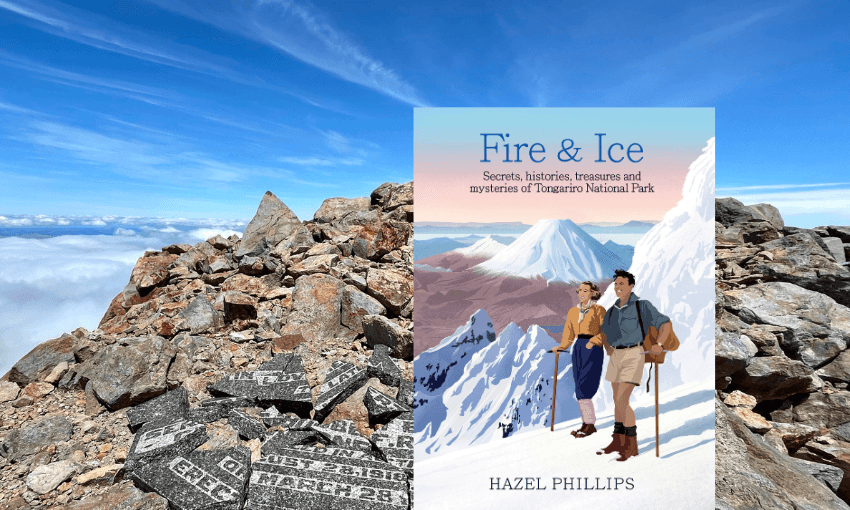The biggest winner from the 2024 Ockham book awards talks to Madeleine Chapman about her fascination with stages of life, advocating for the arts, and what’s next.
Last night, at a not-as-long-as-expected ceremony at Q Theatre in downtown Auckland, Emily Perkins won the Big Prize for the second time. Her novel Lioness was judged the top work of fiction in 2023, with judges saying: “Emily Perkins deftly wrangles a large cast of characters in vivid technicolour, giving each their moment in the sun while dextrously weaving together multiple plotlines. Her acute observations and razor-sharp wit decimate the tropes of mid-life in moments of pure prose brilliance, leaving the reader gasping for more. Disturbing, deep, smart, and funny as hell, Lioness is unforgettable.”
Perkins first won the top national fiction award in 2009, for Novel About My Wife. We spoke on the phone this morning as she took in her latest win, and the $65,000 prize money that accompanies it.
Hi Emily, how are you?
I’m good. I’m good.
You don’t sound hungover.
I’m full of Panadol, and some like really greasy hotel chips at midnight probably saved me.
The Ockhams are this big night with so few winners and then there’s money attached, in an industry where there’s so little money. You’ve won this before, which is even rarer, but do you approach awards differently now than you did after your first book?
Yeah. It’s really interesting. It’s something that I kind of keep turning over. I’ve been on all sides of awards – I’ve been nominated and won, I’ve been nominated and not won, I haven’t been nominated, I’ve been a judge. I see them now as much more about people using what they can to shine a light on things. I don’t see them in an evaluative way. It doesn’t feel like that to me, and I don’t think it should. I
We have few opportunities to bring attention to writing and the arts, and that’s what the awards do.
You were one of a couple of winners who had a little message for the politicians in the room, including the prime minister. I laughed out loud because you essentially said “read a book for once in your life” [Perkins’ actual words were: “To the politicians and the decision-makers and anybody who might find themselves in a system of ‘what if’, I say read a story, read a novel, read the work of the great Canadian writer Alice who died today, and remember how vulnerable and layered and loving and connection we all are.”] Eleanor Catton was criticised for criticising arts funding while in a rare position of arts success and-
I- sorry to cut you off, but it gives you confidence to say things that need to be said and I really admire people who don’t need an accolade in order to do that. Do you know Jeremy Deller? He’s a British conceptual artist and he gave a great interview where he said, “people put a lot of pressure on the arts to save the world. How about rich people save the world?” [laughs]
I do believe the arts have got an incredibly important role and that there is, you know, there are politics inherent in everything. And I believe that art as art is really important too. I think that’s what’s so thrilling say about a book like Audition, or what somebody like Pip Adam is doing is that she’s making work that’s really politically charged, but she’s making it through art, like great art.
Speaking of rich people, what made you want to set Lioness in the world of the rich?
I think I just find it really interesting, is the simple answer, I find class fascinating and troubling, and I also feel like, you know, I am middle class, childhood and it took me quite a long time to really think about the things that I took for granted. Just the privilege of what I did that I took for granted so, I find that really compelling. I mean, people have written about monied worlds here, but I just felt like that was an area that’s a part of life here that I wanted to explore and a part of Wellington that I wanted to explore.
Money exists a bit differently in Wellington, it doesn’t appear in the same way that it appears in Auckland. So I guess I just found it really compelling. And there’s this phrase, it might be from Grace Paley, who’s an amazing American writer and activist, and she said,”every story should contain the facts of blood and money”. And obviously whatever form those take is dependent on the writer and the individual story or novel, but I always think about that when I’m writing.
Do your protagonists age with you?
Yeah, on the whole. One of the other things that I like writing about is times of life. And obviously, they’re different for everybody. People do different things at different times of life, but there’s something about what we experience as we are entering new ages that I find really interesting. So, that does often mean that the characters ageing at the same kind of rate that I am.
Are you imagining your next project or your next book or are you still in Lioness?
I am thinking about the next book and I’m at the sort of early stages, and I’m interested in having a male character at the centre again. Just thinking back to Novel About My Wife and it feels like a while since I’ve done that and I’m really keen to explore that. It’s funny. You know, it’s funny the way that “female rage” has had a moment and I was thinking, what are the unexamined parts of like a stereotypical kind of heterosexual cis male experience – what are the taboos of that? So that’s one of my motivating questions.
I’ve been watching all of Jane Campion’s work again recently because I’m talking to her at the festival and I’m always really interested to see what female filmmakers do who make work that’s sometimes about men. One of my favourite films is Claire Denis’s film Beau Travail. I don’t know if you’ve ever seen it but it’s fucking incredible. And it’s about the French Foreign Legion and it’s about all kinds of things. But it’s very much about masculinity and just having a woman’s eye on it is something that I find myself really drawn to.
Everyone talks about writing now as essentially a hobby, or some pocket money alongside your day job. But I’m always wondering whether there ever was a time when book writing was really great. Does it pay less now to be a writer than it did when you began?
I feel like it probably always has been tough. So I think one of the things that’s happened is probably a lot more money at one end of the market or industry or whatever. And then a lot of the middle’s been hollowed out. And obviously it’s very difficult when you’re starting unless you happen to be a debut author who gets like a big international advance, but that’s incredibly rare.
I’ve always had things that I’ve supplemented my fiction writing with, and when I lived in the UK, I was able to support myself writing a column. I was living very frugally, but like, there’s just no way you could do that now. Unless you were like a celebrity columnist or something.
I think even then you probably couldn’t. What column did you write?
I wrote one for the Independent on Sunday for about four and a half years when my kids were babies. So it was a real lifesaver. And, you know, it’s not a huge tonne of money, but it was definitely more than it would be now.
The reality of the Acorn is it’s a big chunk of money. Do you have any plans for it?
I mean, I wasn’t expecting to get it [laughs] and it’s such a big amount of money that I really want to think carefully about it. So yeah, I’ve got no plans at this point.
Was there anything you wish you had said last night that you didn’t?
Well, I did get the chance to talk to Paul Goldsmith afterwards and that’s what I mean by appreciating being in the room and having the chance to say something to people like that about state funding for the arts. So that was good to have that opportunity. And I just feel like the readings were so good last night. I probably did say that [ed’s note: she did] but I was just really found the readings affirming and full of vital charge so that was really wonderful to hear.
Well thank you. Appreciate you taking the time.
Thanks, I hope I’ve made some sense. I still am slightly on another planet.
Lioness by Emily Perkins (Bloomsbury, $37) can be purchased from Unity Books Wellington and Auckland. Perkins will be appearing at the Auckland Writers Festival this weekend.



